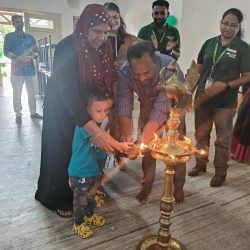What better time than now to make a difference
 Dr Nandini Vallath, who attended CND, Vienna in March 2016 writes:
Dr Nandini Vallath, who attended CND, Vienna in March 2016 writes:
The Commission on Narcotic Drugs (CND) consists of representatives of government departments of the member states which meet annually to review drug policy mandates, discuss priorities for the year and reach a consensus on action points. The CND session that was held in Vienna for the 59th time this March was special; it aimed at preparing a draft Outcome Document for the UN General Assembly Special Session (UNGASS) on Drugs that was to be held this April.
The last time that a UNGASS on Drugs was held was in 1998, when the global mandate on drug policies were strongly prohibitory and upheld the ‘war on drugs’ approach in it’s language and recommendations. We are all aware of the decades of human suffering as a consequence of the mandates in terms of poor access and availability of essential medicines that come under international control.
Yet, I saw first hand how time brings in new knowledge and experience, that questions earlier perspectives and transforms viewpoints. In the few sessions that I listened to at the CND Vienna, the atmosphere was vibrant with a new energy. The member states one after another, recorded their official statement, and to my surprise most of them included at least one comment on the need for a humanitarian and developmental approach to the global drug problem and mentioned the need to address the issue of poor access and availability of controlled medicines. In general, the Scandinavian and Latin American countries were the strongest advocates. India participated in the CND through high level officials of the Department of Revenue and the Director of Narcotics Control Division Sri Tiwari, and actively supported the reorientation of drug policies.
There were three side events addressing the the specific need to improve access to essential controlled medicines.
i) Resolving the Global Crisis of Untreated Pain by Improving Access to Controlled Medicines within the Framework of the Sustainable Development Goals, organized by the Governments of Lithuania, Panama and Mexico, IAHPC, Human Rights Watch
ii) The public health elements of drug policy hosted by the WHO
iii) Striving for equity in the treatment of pain organized by the Government of the UK, International Doctors for Healthier Drug Policies, Pallium India and Kenya Hospice Palliative Care Association. I had the opportunity to speak on the advocacy efforts towards a healthier drug policy in India at this side event.
And sure enough, for the first time, ensuring the availability of and access to controlled substances for medical and scientific purposes has been included as a new independent section in the draft Outcome Document for the UNGASS. The recommendations for action, emphasize collaborations: between government, the UN agencies [WHO, UNODC, and INCB] and civil society at local and global levels. In addition, it provides the advocacy framework for the countries for this interagency participatory action.
What better time than now, to go forth and engage with the government at the center and the states to get the simplified policy implemented and get down to work on transforming the situation of access to pain relief in our country?




